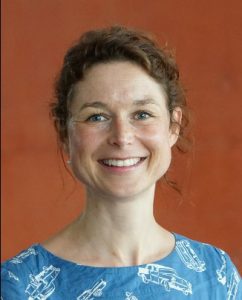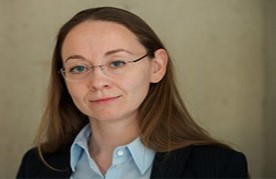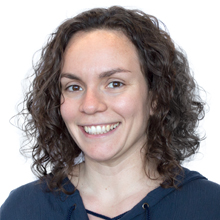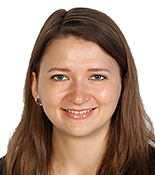
Chase Baisel
RNA synhetic biology (HZI-HIRI)
This programme leverages the expertise of the European Molecular Biology Laboratory (EMBL) and the Helmholtz Centre for Infection Research (HZI) in the field of human microbiota research.
Postdoctoral Research fellows will be granted salary funding for two years to carry out research projects between a group at EMBL and a group at HZI, located at the multiple sites of both institutes. Fellows can be linked to more than one lab in each institute, but need one main host lab at EMBL or HZI, where they will be employed, and need to spend at least a total of 3 months at the partner institution. Research activities must address the following topic:
“The human microbiome: From molecular understanding to exploiting these microbial ecosystems for human health”
Humans are hosts to diverse and dynamic assemblages of microorganisms. Alterations in these communities have been linked to many human diseases, including the susceptibility and treatment outcome of infectious, metabolic-, immune-mediated diseases and cancer. Understanding the causal molecular elements and underlying mechanisms of these associations is instrumental for developing novel interventional strategies based on rational and effective microbiota editing. To address this challenge, scientists from EMBL and HZI will work together to understand the functional diversity of microbes living in these communities, to dissect the interactions and properties of the complex communities they assemble, and to study the molecular interactions with the host. The two institutes will combine their expertise in bacteriology, genetics, molecular and cell biology, multi-omics approaches and systems biology, immunology, natural product research, bioinformatics and modelling.
Successful postdoctoral fellows will have a primary lab (at EMBL or HZI), but will be jointly mentored by scientists from both institutions to harness the complementary expertise of the research centres. They will also have access to state-of-the-art core facilities for sequencing, imaging and omics approaches, and cutting-edge expertise in a number of areas related to microbiome research, including the generation of disease-specific gnotobiotic models, advanced genetic tools for commensal bacteria, automated platforms for the high-throughput phenotyping of microbes and their communities, and computational resources and tools for leveraging the large amounts of data being generated.
Applicants must have completed a PhD at the date of recruitment (start date of the fellowship). Successful candidates have 3 months to take up their fellowship (starting from Oct 1, 2022 for fellows recruited in the 2022 EMBL/HZI call for applications).
The EMBL/HZI programme is open to experienced researchers of all nationalities. Prior association (including visitor contracts) of an applicant with EMBL or HZI is compatible with application to the programme but cannot exceed 12 months within the last 3 years prior to the application deadline.
All applications should include:
The EMBL-HZI Postdoctoral Fellowship Programme is a competitive merit-based fellowship programme. Eligible applications are independently reviewed by one EMBL and one HZI group leader as well as two external experts. Evaluators are asked to provide an overall impression of a candidate’s application in terms of excellence and collaborative potential.
Interviews: The interviews take place 3 months after the call closes, on 15th or 16th of September. Candidates give a talk on their research accomplishments (10 minutes) and proposed project (2 minutes), and then have a panel interview (30 minutes).
You are invited to propose a project of your own design with at least one PI per institute. Please contact the participating groups beforehand to discuss and formulate a successful project.
Please send your complete application in one PDF document to: postdoc_call2022@helmholtz-hzi.de
If you have question regarding the Programme and application procedure, please contact: birgit.gruen@helmholtz-hzi.de
Here you can see the participating group leaders with areas of interest and potential collaboration partners at the other institution. Feel free to propose new collaborations if you believe they will be advantageous for the project.

RNA synhetic biology (HZI-HIRI)
Area of interest:
rendering microbiota genetically tractable
Potential collaboration partners at EMBL:
Nassos Typas (high-throughput genetics, bacteriophages, microbiota mechanisms)

RNA biology of gram-positive bacteria (HZI-HIRI)
Area of interest:
drug – toxin interactions, C. difficile
Potential collaboration partners at EMBL:
Nassos Typas (systems microbiology, gene-drug profiling)

Drug Design and Optimization (HZI-HIPS)
Area of interest:
structure-based drug design, microbiota-drug interactions, chemical probes
Potential collaboration partners at EMBL:
Nassos Typas (drug-drug/drug-microbiome interactions)
Mikhail Savitski (thermal proteome profiling)
Peer Bork (identification of novel microbial markers for disease)

Experimental Immunology (HZI-BS)
Area of interest:
T cells, neonatal immunology & infections/microbiota, epigenetic imprinting
Potential collaboration partners at EMBL:
Georg Zeller (microbiome associations with health/disease states, computational approaches)
Michael Zimmermann (metabolomics, metabolic interactions)

Cellular Proteomics (HZI-BS)
Area of interest:
microbiome-dependent mucosal immunity, T (MAIT) cells, MR1-ligands, single-cell proteomics, C. difficile
Potential collaboration partners at EMBL:
Michael Zimmermann (metabolic interactions, mucosal immunity, drug-tissue interactions)
Georg Zeller (multi-omics analysis for tissue-localized immune cells)

Drug bioinformatics (HZI-HIPS)
Area of interest:
microbiome-drug interactions, mode of action prediction, structural bioinformatics
Potential collaboration partners at EMBL:
Maria Kogadeeva-Zimmermann (metabolic modelling, multi-omics integration, microbiota interactions, predictive models)

Ecology and emergence of zoonotic diseases (HZI-HIOH)
Area of interest:
one health, ecology, zoonotic microorganisms, epidemiology
Potential collaboration partners at EMBL:

Computational Biology of Infection Research (HZI-BS)
Area of interest:
metagenomics, metagenome assembled genomes, clinical studies
Potential collaboration partners at EMBL:
Rob Finn (metagenomics, MAGs, viral microbiome)

Systems Immunology (HZI-BS)
Area of interest:
mathematical modelling of microbiome-immune system interactions
Potential collaboration partners at EMBL:
Georg Zeller (longitudinal microbiome data)

Microbial Natural Products (HZI-HIPS)
Area of interest:
natural products, metabolomics, microbial biotechnology & engineering, drug discovery
Potential collaboration partners at EMBL:
Nassos Typas (human gut microbiome, genomics, gene–drug Interactions, high-throughput approaches)

Single-cell Analysis (HZI-HIRI)
Area of interest:
host-microbiome (pathogen) interactions, single-cell genomics
Potential collaboration partners at EMBL:
Georg Zeller (spatial transcriptomics, RNA bacterial imaging, expansion microscopy, single-cell bacteria RNA-seq, clinical samples)
Peer Bork (single-cell bacteria RNA-seq)

Microbial Immune Regulation (HZI-BS)
Area of interest:
colonization resistance, microbial interactions, Prevotella, gnotobiotic mice, culturomics, Immune modulation
Potential collaboration partners at EMBL:
Mikhail Savitski (proteomics)
Nassos Typas (high throughput microbial phenotyping, Tn-Seq)
Michael Zimmermann (drug-microbiota interactions)
Maria Zimmermann (metabolic adaptations in bacteria)
Robert Finn: (metagenomics)

RNA Biology of bacterial infections (HZI-HIRI)
Area of interest:
Potential collaboration partners at EMBL:

Analysis of protein sequence and structure, EMBL-EBI
Area of interest:
RNA informatics
Potential collaboration partners at HZI:

Deciphering function and evolution of biological systems, EMBL Heidelberg
Area of interest:
Potential collaboration partners at HZI:

Computational metagenomics and analysis, EMBL-EBI
Area of interest:
Potential collaboration partners at HZI:
Alice McHardy
Jörg Vogel

Epigenetic mechanisms and intergenerational inheritance, EMBL Rome
Area of interest:
Potential collaboration partners at HZI:

Algorithms for analysis of microbial genomes and applications to epidemiology, antimicrobial resistance, surveillance, EMBL-EBI
Area of interest:
AMR, plasmids, genome graphs, pan genomes, sequence search, horizontal gene transfer
Potential collaboration partners at HZI:

Drug discovery and chemical biology, EMBL-EBI
Area of interest:
cheminformatics, computer modelling, drug and bioactivity data, chemical probes
Potential collaboration partners at HZI:

Pathogen informatics and modelling, EMBL-EBI
Area of interest:
computational methods, antimicrobial resistance, modelling microbiome dynamics, strain-resolved metagenomics, adaptive sequencing
Potential collaboration partners at HZI:
Olga Kalinina, Michael Meyer-Hermann, Alice McHardy

Whole Cell Signalling, EMBL-EBI
Area of interest:
host-pathogen interactions, including through linear motif-based interactions and in terms of methods network modelling and data integration
Potential collaboration partners at HZI:

Stability proteomics for assessing the state of the proteome, EMBL Heidelberg
Area of interest:
bacterial signalling, post-translational regulation
Potential collaboration partners at HZI:
Anna Hirsch (chemical probes, target-based drug disocvery, drug-microbiota interactions)
Rolf Müller (natural products, secondary metabolites, antibiotics)

Systems microbiology, EMBL Heidelberg
Area of interest:
high-throughput genetics, microbiome dark matter
Potential collaboration partners at HZI:
Chase Baisel (genetic tractable systems, selfish elements, phage)
Anna Hirsch (chemical probes, target-based drug disocvery, drug-microbiota interactions)
Rolf Müller (natural products, secondary metabolites, antibiotics)
Till Strowig (Prevotella, colonization resistance, gnototbiotic mice)
Jörg Vogel (genomics & RNA biology of gut bacteria)

Group Leader, EMBL Heidelberg
Area of interest:
microbial development, biofilms, protozoan-bacterial co-evolution
Potential collaboration partners at HZI:
Lars Barquist (adaptation in host-pathogen interactions)
Jörg Vogel (microbial scRNA-seq)
Alexander Westermann (host-pathogen-microbiota interactions, dual RNA-seq)
Rolf Müller (myxobacterial predation, secondary metabolites)

Metabolic microbiome–host interactions, EMBL Heidelberg
Area of interest:
Potential collaboration partners at HZI:
Lothar Jänsch (cellular proteomics, mucosal immunity, drug-microbiota-tissue interactions)
Dunja Bruder (mucosal immunity, metabolic bacteria-MAIT-cell interaction)
Jochen Huehn (metabolic microbiota T-cell interactions, neonatal infections)
Till Strowig (drug-microbiota interactions, metabolic microbiota-host interactions)
Anna Hirsch (microbiota-guided drug design, target-based drug disocvery, chemical probes)

Multi-omics-based modelling of microbial ecosystems, EMBL Heidelberg
Area of interest:
metabolic interactions, multi-omics integration, modelling
Potential collaboration partners at HZI:
Olga Kalina (structural bioinformatics of gut bacterial metabolism)
Till Strowig (microbiome metabolic interactions, gnotobiotic mice)

Computational analysis of host-microbiota interactions in disease and drug therapy, EMBL Heidelberg
Area of interest:
computational and statistical analysis, function prediction, biomarkers, imaging microbial communities
Potential collaboration partners at HZI:
Antoine-Emmanuel Saliba (imaging microbial communities and infections)
Rolf Müller (microbial secondary metabolism)
Lothar Jänsch (cellular proteomics, mucosal immunity, drug-microbiota-tissue interactions)
Dunja Bruder (mucosal immunity, metabolic bacteria-MAIT-cell interaction)
Jochen Huehn (metabolic microbiota T-cell interactions, neonatal infections)
Michael Meyer-Hermann (mathematical modelling of microbiome-immune system interactions)
Duration of fellowship:
24 months (with a total of 3 months in the other institute)
Number of fellowships:
4 (2 at each institute)
Proposed timeline:
Call opens: 15.04.2022
Deadline application: 15.06.2021
Internal pre-selection: 01.07.2021
Interviews: 15 or 16.09.2022
Communication of decisions: Shortly after interview
Start: 01.10.2022 (or within next 3 months)
